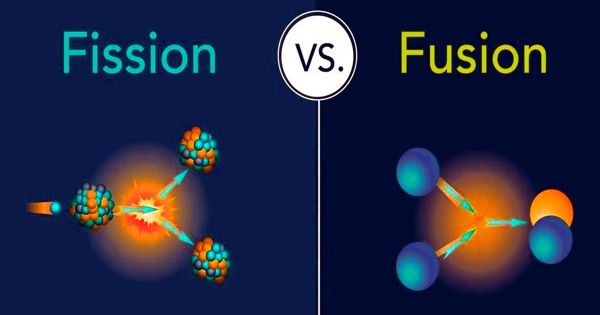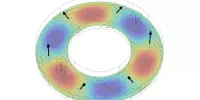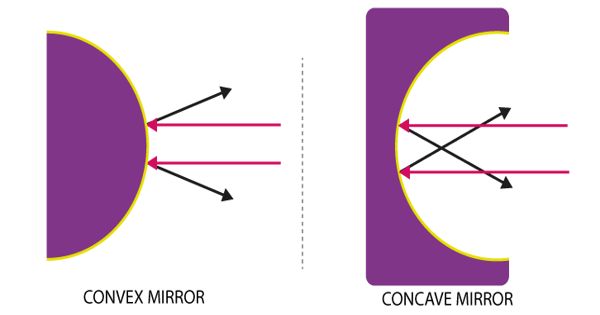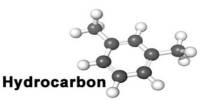Nuclear fission and fusion involve the disintegration and combination of the elemental nucleus. The process in which a heavy nucleus is broken into tiny nuclei is called nuclear fission. In the case of nuclear fission, an atom divides into two or smaller or lighter atoms. On the other extreme, nuclear fusion is defined as the reaction wherein lighter atoms come together and form a heavy nucleus. It occurs when two or more atoms join or fuse together to form a large or heavier atom.
The nuclear reaction in which a heavy nucleus is broken into smaller nuclei, by releasing neutrons and energy, is called nuclear fission. A process in which two or lighter atoms combine to create a heavy nucleus is called nuclear fusion.
Difference between Nuclear Fission and Nuclear Fusion –
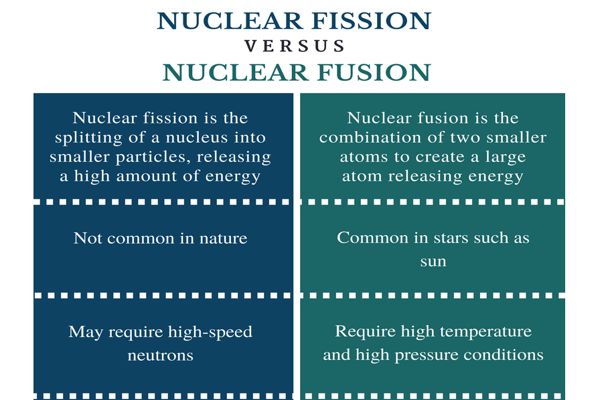
NUCLEAR FISSION
- Nuclear fission is a nuclear reaction in which the nucleus of an atom is bombarded with low energy neutrons which split the nucleus into smaller nuclei.
- Nuclear fission implies reaction in which a heavy nucleus is broken into smaller nuclei, by releasing neutrons and energy.
- When the nucleus of an atom splits into lighter nuclei through a nuclear reaction the process is termed nuclear fission.
- Nuclear fission is a process, wherein the nucleus of the large atoms like uranium or plutonium, is bombarded with the neutron of low-energy, breaks into small and lighter nuclei.
- Nuclear fission reaction does not happen naturally. It liberates an enormous amount of energy during the reaction.
- The energy liberated during the nuclear fission can be utilised in the production of steam, which in turn can be used to generate electricity. The nuclei formed during the reaction, are highly neutron-rich and unstable.
NUCLEAR FUSION
- Nuclear Fusion is a reaction that occurs when two atoms combine together to form one or more different atomic nuclei and subatomic particles like protons and neutrons.
- Nuclear fusion refers to a process in which two or more lighter atoms combine to create a heavy nucleus.
- Nuclear fusion is a reaction through which two or more light nuclei collide with each other to form a heavier nucleus.
- Nuclear fusion implies a nuclear reaction, wherein two or more lighter nuclei fuse to create one heavy nucleus, which produces a tremendous amount of energy, such as hydrogen atoms fuse to form helium.
- Nuclear fusion takes place naturally, such as in stars like the sun. However, this is 3-4 times less than the energy released during nuclear fusion.
- In this process, a substantial amount of energy is required to force low energy atoms to fuse. Moreover, extreme conditions are required for this process to take place, i.e. higher degrees of temperature and high pascals of pressure.
In the nuclear fission reaction, the amount of energy required is less than the energy needed in a fusion reaction. Nuclear fission can be controlled through various scientific processes. As against this, nuclear fusion is impossible to control.
